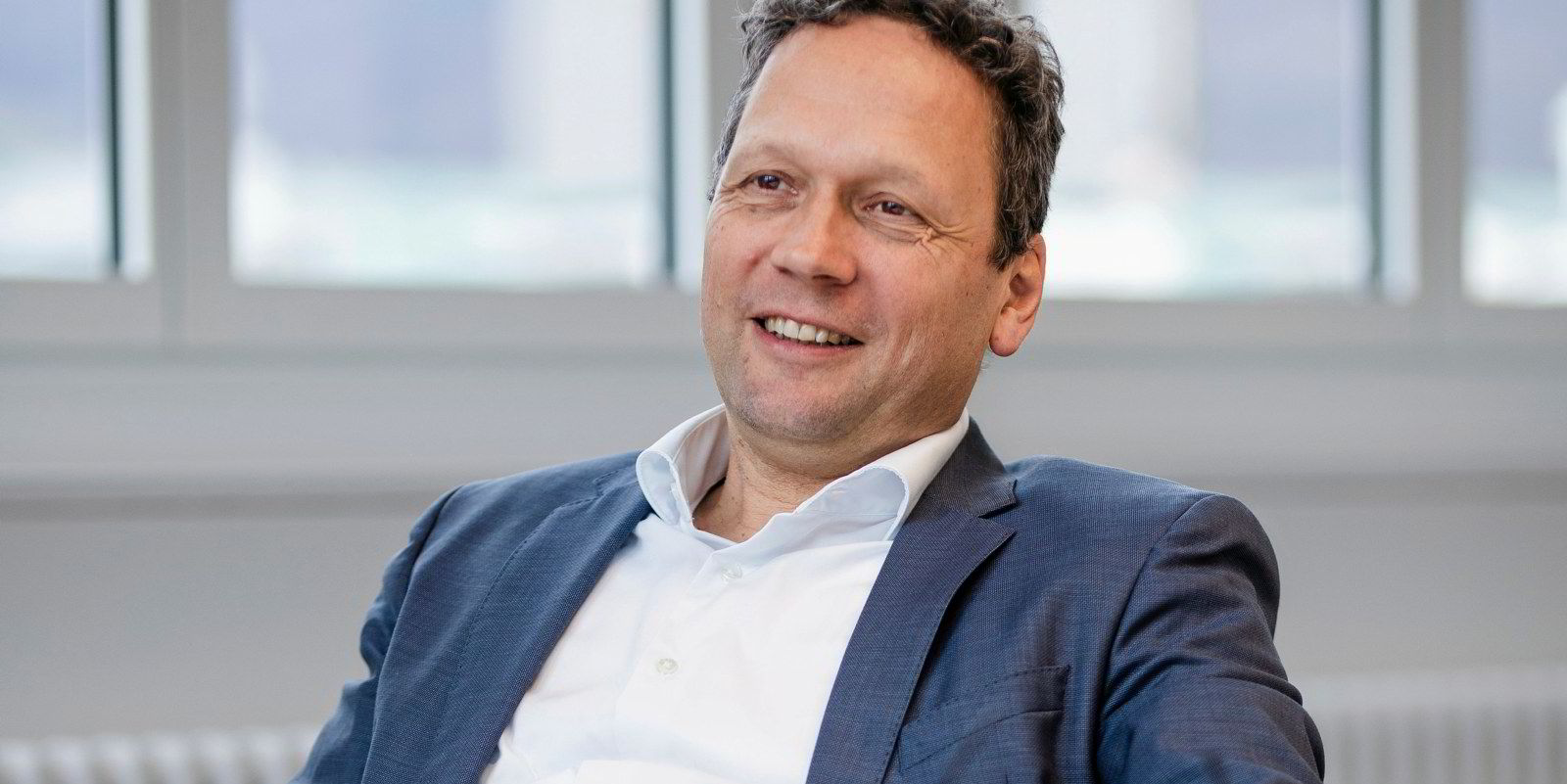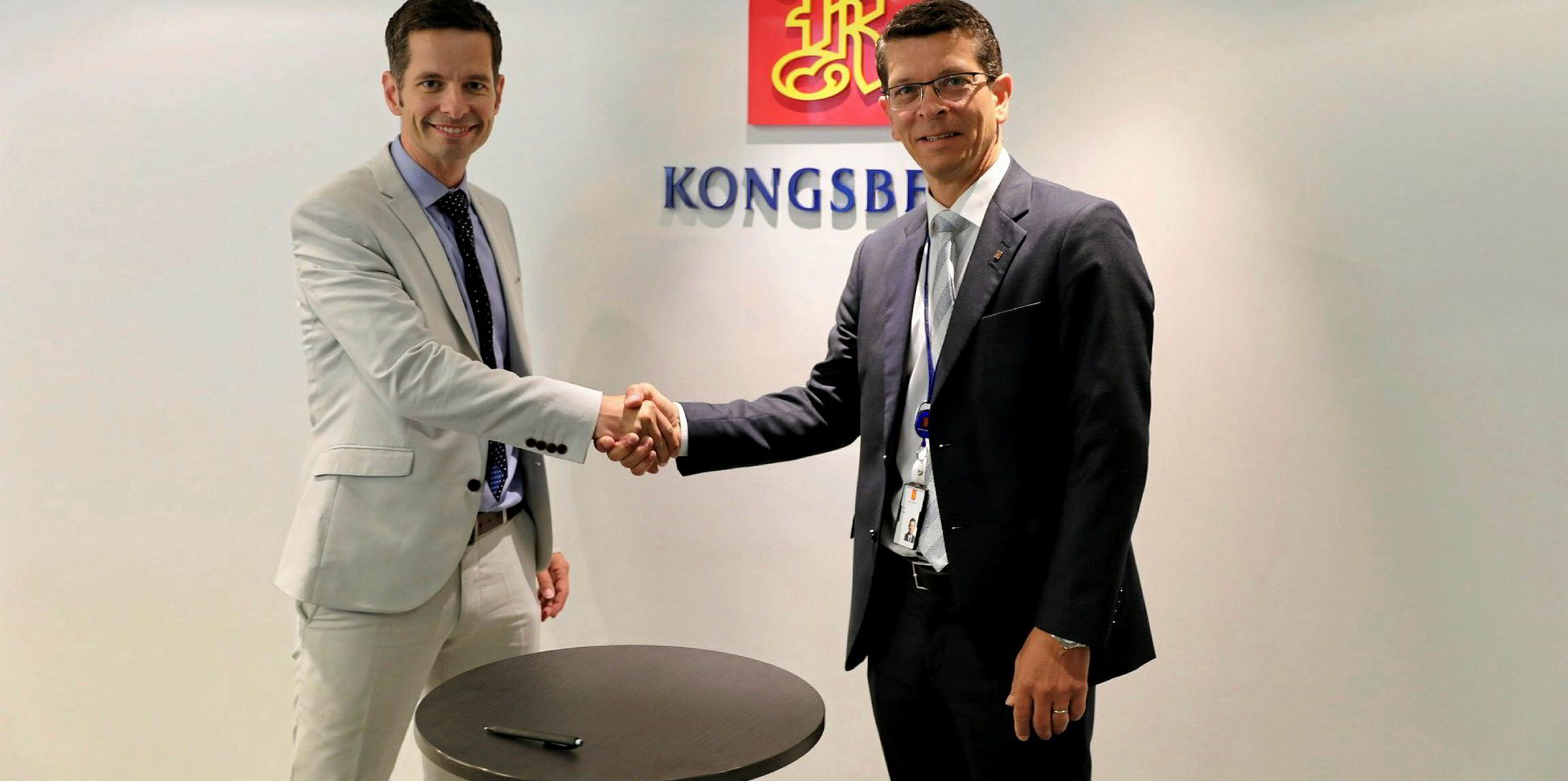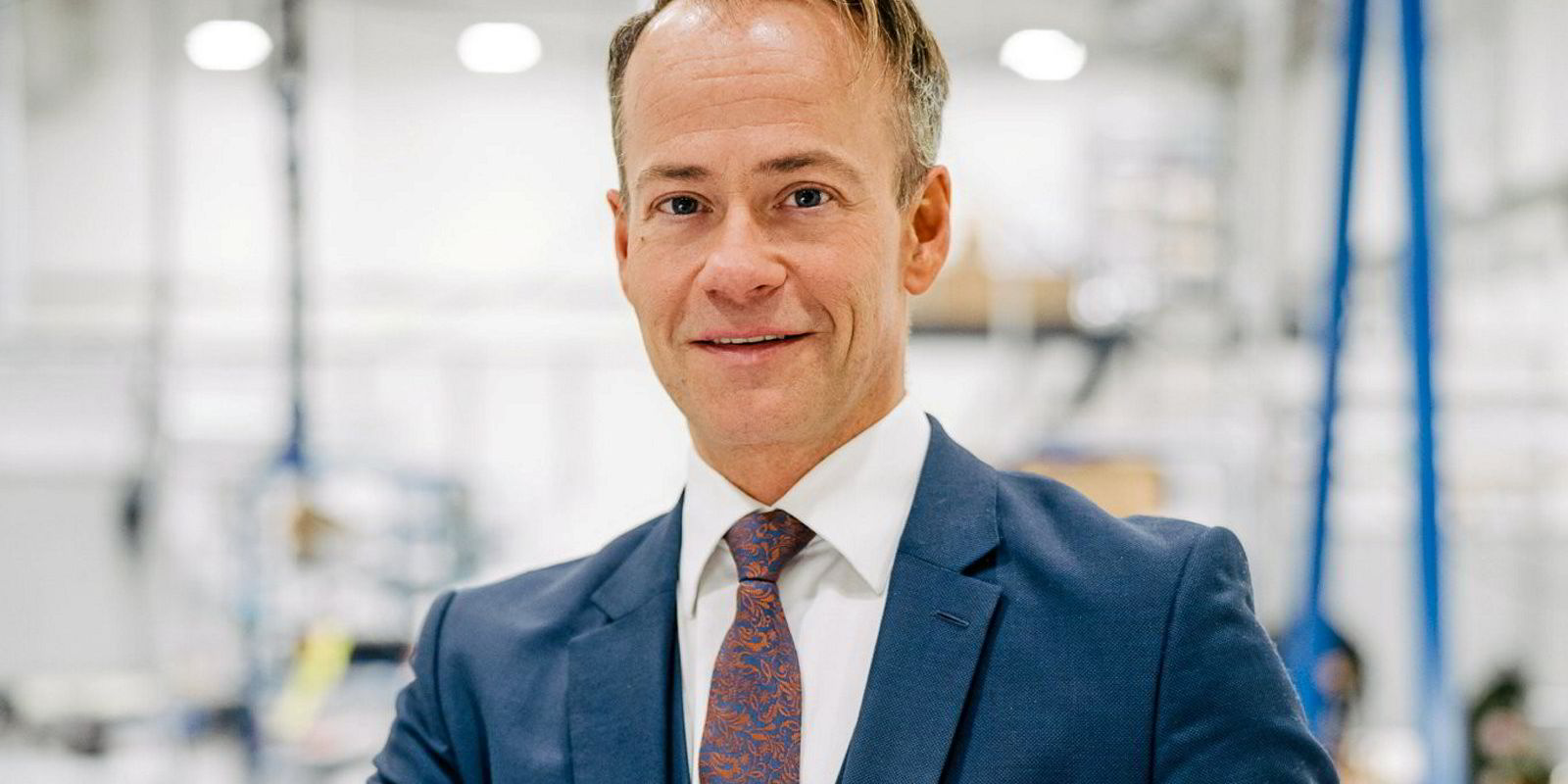Accelleron, the engine turbocharging company spun off from ABB last year, is developing turbochargers able to run on alternative marine fuels.
Chief technology officer of the Switzerland-based company Dirk Bergmann told TradeWinds turbochargers are being tested on prototype engines run on methanol, and ammonia and fuel cells will follow.
Turbochargers use the residual energy of exhaust gas to drive a turbine and can increase engine power output by 300%, enabling up to 10% higher engine efficiency and reduction in carbon emissions.
Bergmann said that as international shipping will continue to use internal combustion engines the biggest issues from a turbocharging perspective that need to be solved for burning methanol, ammonia or hydrogen relate to how much air is demanded for the combustion system.
“It is a kind of application engineering,” he said. Conversion from diesel to LNG is “normal business for us” he said of current dual fuel engine applications.
“As a liquid fuel under ambient pressure conditions, methanol looks like it will be nearly the same combustion parameters as diesel, and we are on most prototype engines running on methanol globally with our turbochargers at the engine laboratories.
Ammonia, though, is harder to ignite and is not as stable when burnt.
“I compare it with trying to light a campfire with wet wood. You need to find a way to ignite it and make it stable,” he said.
Development is starting to get underway on prototype engines in research institutes and at engine manufacturers.
An ammonia turbocharger “looks like it will be less demanding in terms of air-fuel ratio but a bit higher demanding in terms of air quantity,” Bergmann said.
“This is at the beginning but we know what to do to improve,” he added.
Accelleron is also looking at the higher temperature solid oxide fuel cells which as they work at temperatures of 600 to 800 degrees Celsius emit exhaust containing energy levels nearly the same as internal combustion engines.
Simulation of using that exhaust gas has shown it should be possible to improve the electrical efficiency of solid oxide fuel cells by 10% to 70%. Research is at an early stage but Bergmann said the performance improvement looks very promising.
Results for Accelleron's first year of independent operation from ABB just out show it made $192m in operational earnings on revenues of $781m giving it an operating margin of 24.6%.
It delivers around 10,000 turbochargers every year and there is an installed base of over 180,000 active units.
About 75% of revenues come from servicing with the company operating 100 service stations in ports around the world.
It offers a 48-hour delivery service for spare parts helped by running its own shuttle truck to a dedicated check-in gate at Zurich airport.





